Two years after Sri Lanka’s president was ousted by protests – could it all have been for nothing?
Protesters who toppled the Rajapaksa government in 2022 are hoping for change in Saturday’s election – but two of the top candidates are closely linked to the establishment. Alisha Rahaman Sarkar reports on a vote that is finely poised with 38 candidates vying to lead the country out of an economic crisis
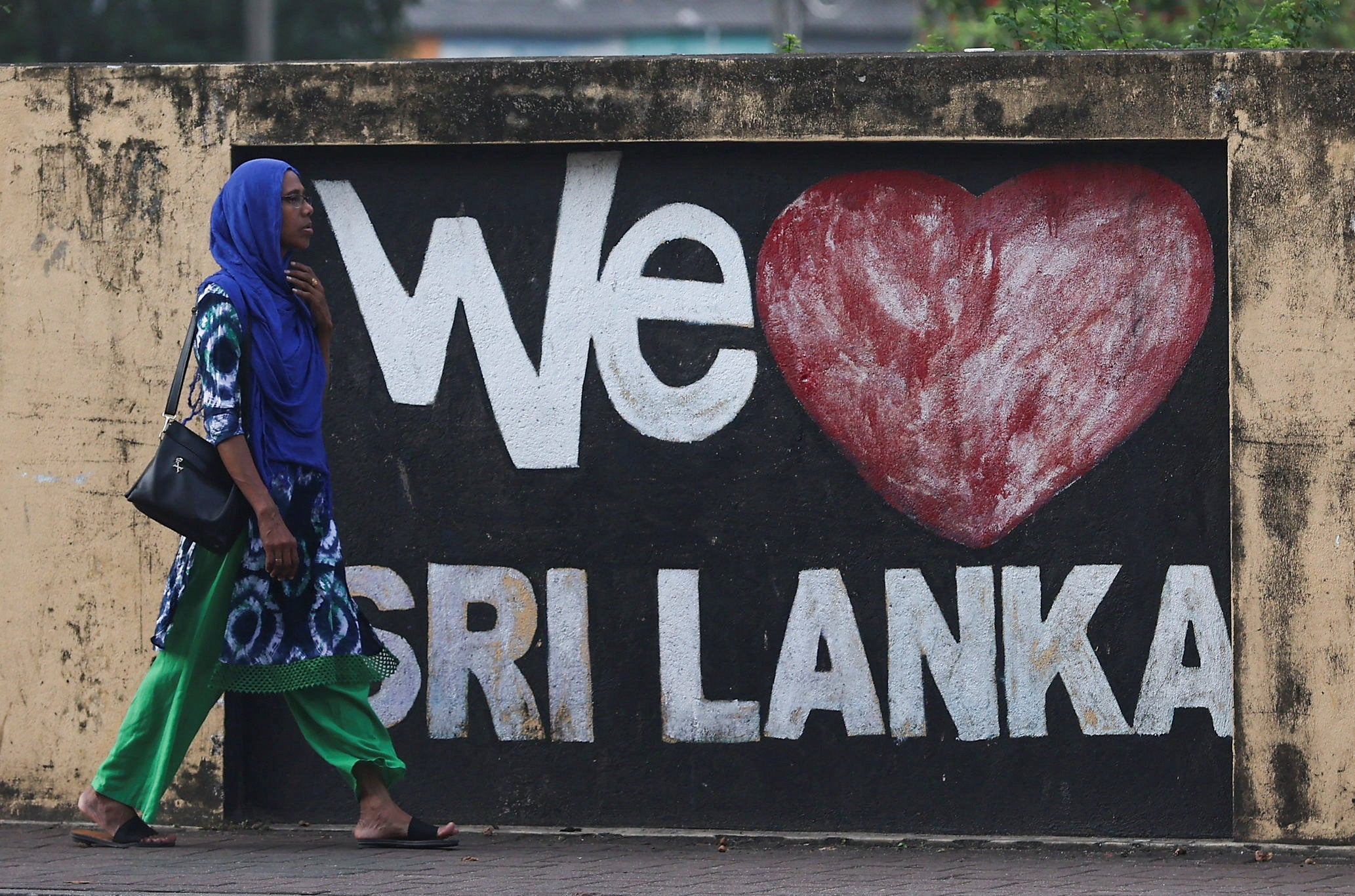
In the summer of 2022, Pali Abeywickrama and his friends marched to the presidential palace during Sri Lanka’s popular anti-government uprising. They and thousands of others stormed Gotabaya Rajapaksa‘s residence and forced the president to flee the country, in scenes that made headlines around the world.
Mr Abeywickrama is now gearing up for another march, this time to the polling station to cast his vote in Saturday’s election, the first to be held since the “aragalaya” (struggle) that brought down the Rajapaksa regime.
Hundreds and thousands of people across the island took to the streets in July 2022 after struggling with an acute food, medicine, and fuel shortage triggered by soaring inflation. Two years later the collective public anger may have abated, but the economic condition of the nation of 22 million people remains volatile.
Saturday’s election is both unpredictable and crucial, with a record number of 38 candidates, all men, in the fray.
There has not been a single presidential election in Sri Lanka without the participation of the Rajapaksa family in over two decades and Saturday’s will be no exception. The candidature of Namal Rajapaksa, the 38-year-old son of another former president Mahinda Rajapaksa, has sparked fears about a resurgence of the Rajapaksa dynasty on the troubled island.
“The protests were the need of the hour and there is no place for the Rajapaksas in Sri Lankan politics,” 33-year-old trader Abeywickrama tells The Independent. “The act of storming the palace was revolutionary,” he says. He hopes the future of the island will change for the better, “but the protests unfortunately made very little difference.”
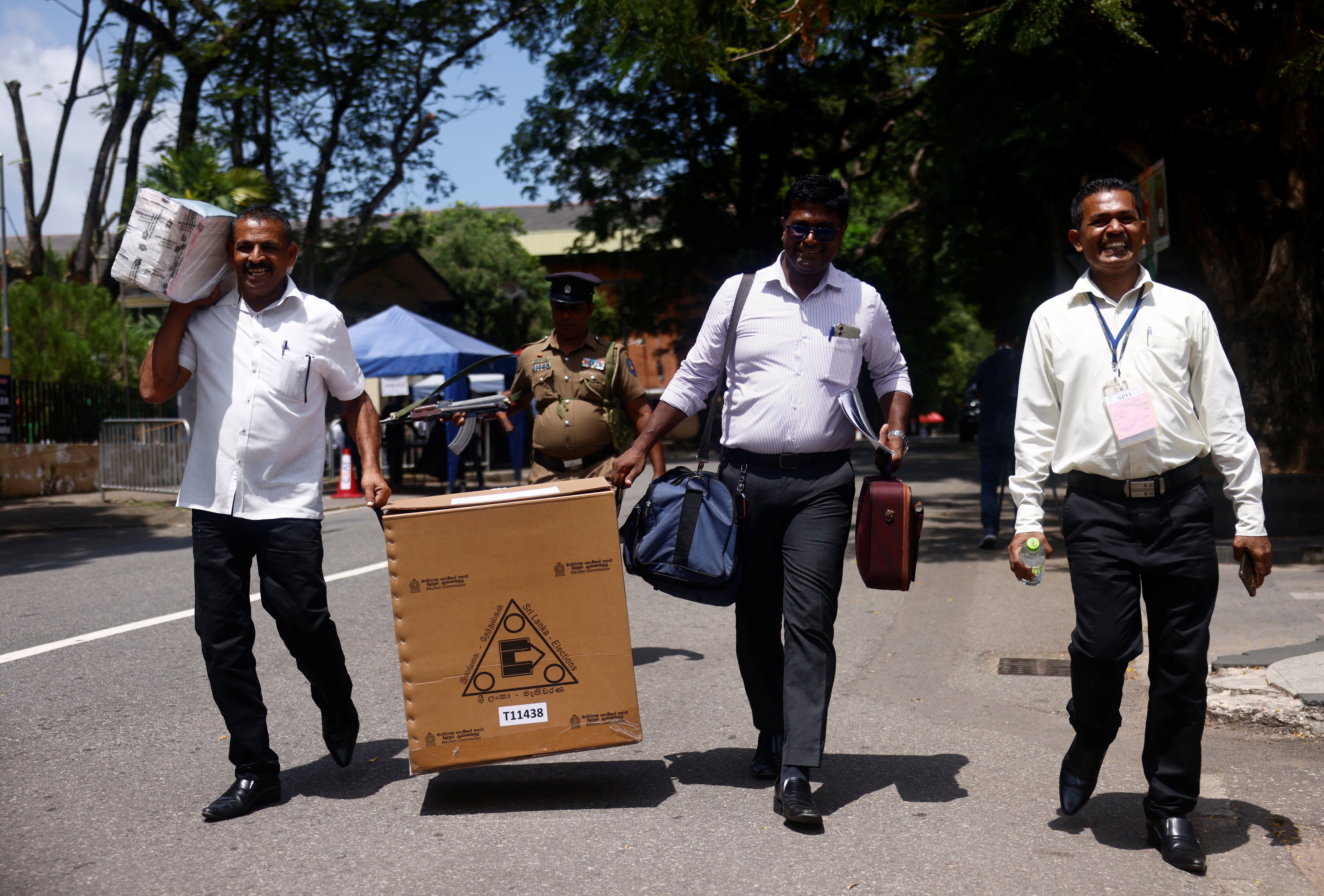
The members of the 2022 protest movement have largely thrown their weight behind Anura Kumara Dissanayake to lead the fight against corruption and revive a broken economy. Marxist-leaning 56-year-old Dissanayake, popularly known as AKD, leads the Janatha Vimukthi Peramuna (JVP) party as well as a broad alliance formed in 2019 called National People’s Power (NPP), which controls the third-largest bloc of seats in parliament.
The aragalaya paved the way for Mr Dissanayake, once considered a political outsider, to build his campaign on sweeping reforms, tackling corruption and ensuring economic relief. He polled just 3 per cent in the last presidential election but is leading in voting preferences at 36 per cent, according to the Sri Lanka Opinion Tracker Survey by Institute for Health Policy.
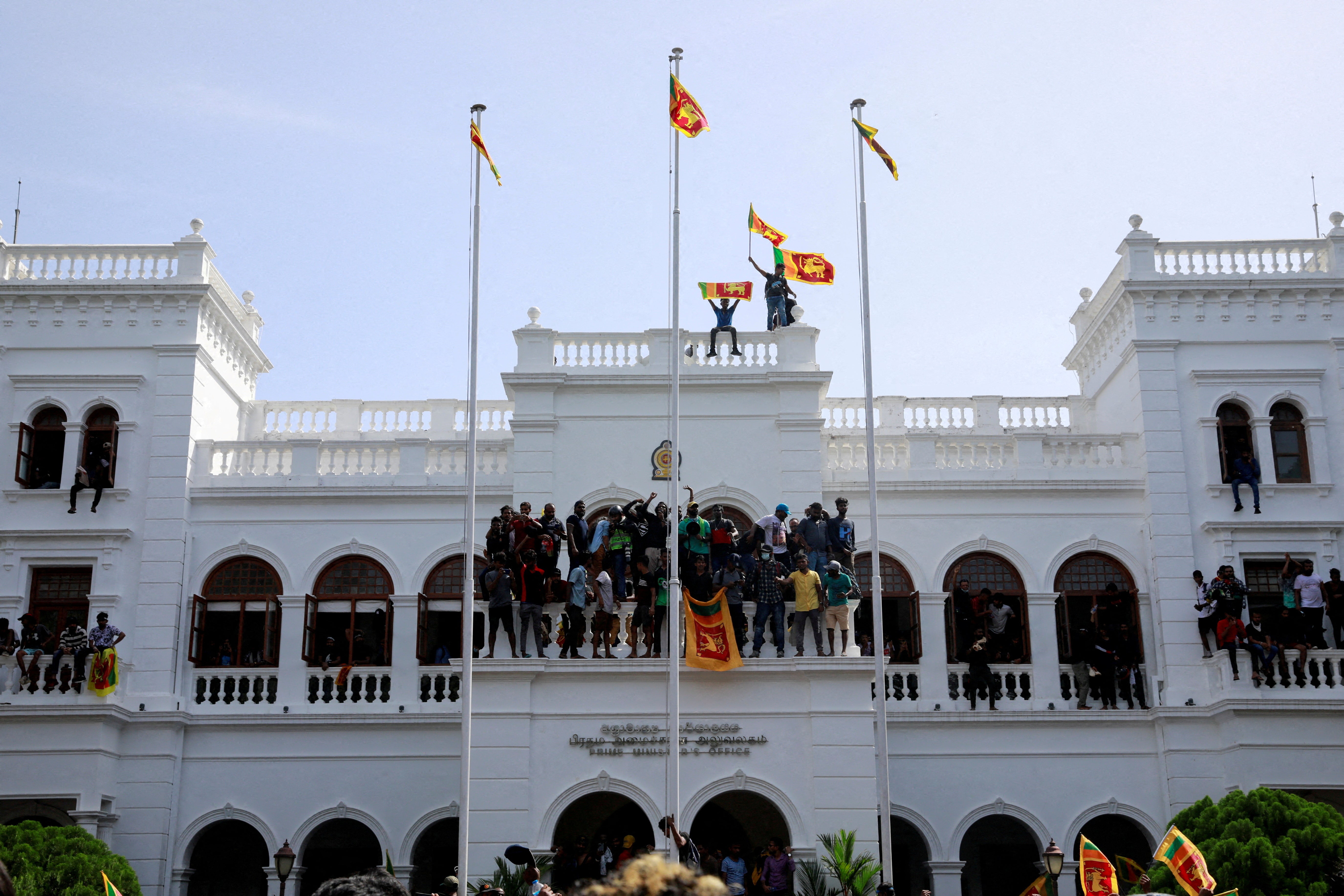
Opposition leader Sajith Premadasa of the Samagi Jana Balawegaya (SJB) party is at 32 per cent while incumbent president Ranil Wickremesinghe is third with 28 per cent, according to the poll.
“AKD is appealing to those who view the crisis as a result of corruption, and they see this election as a once-in-a-lifetime opportunity to change the system,” Dhananath Fernando, an economist at the Colombo-based think tank Advocata Institute, told Reuters. “It’s a chance to register a protest vote against previous leaders.”
Mr Dissanayake, known for his ability to deliver stirring speeches in eloquent Sinhala, the main language spoken by the island’s largest ethnic group, declared that he was ready to serve Sri Lankans, calling the election a “perfect opportunity” for them to put behind the pain and suffering of the economic and political crisis.
“Now that victorious moment is finally here and we should work together to ensure it is not lost,” he said at a recent rally in Thambuttegama, a farming community about 180km (112 miles) from Colombo.
“Our victory is assured, we will definitely form the government by winning the presidency,” he asserted.
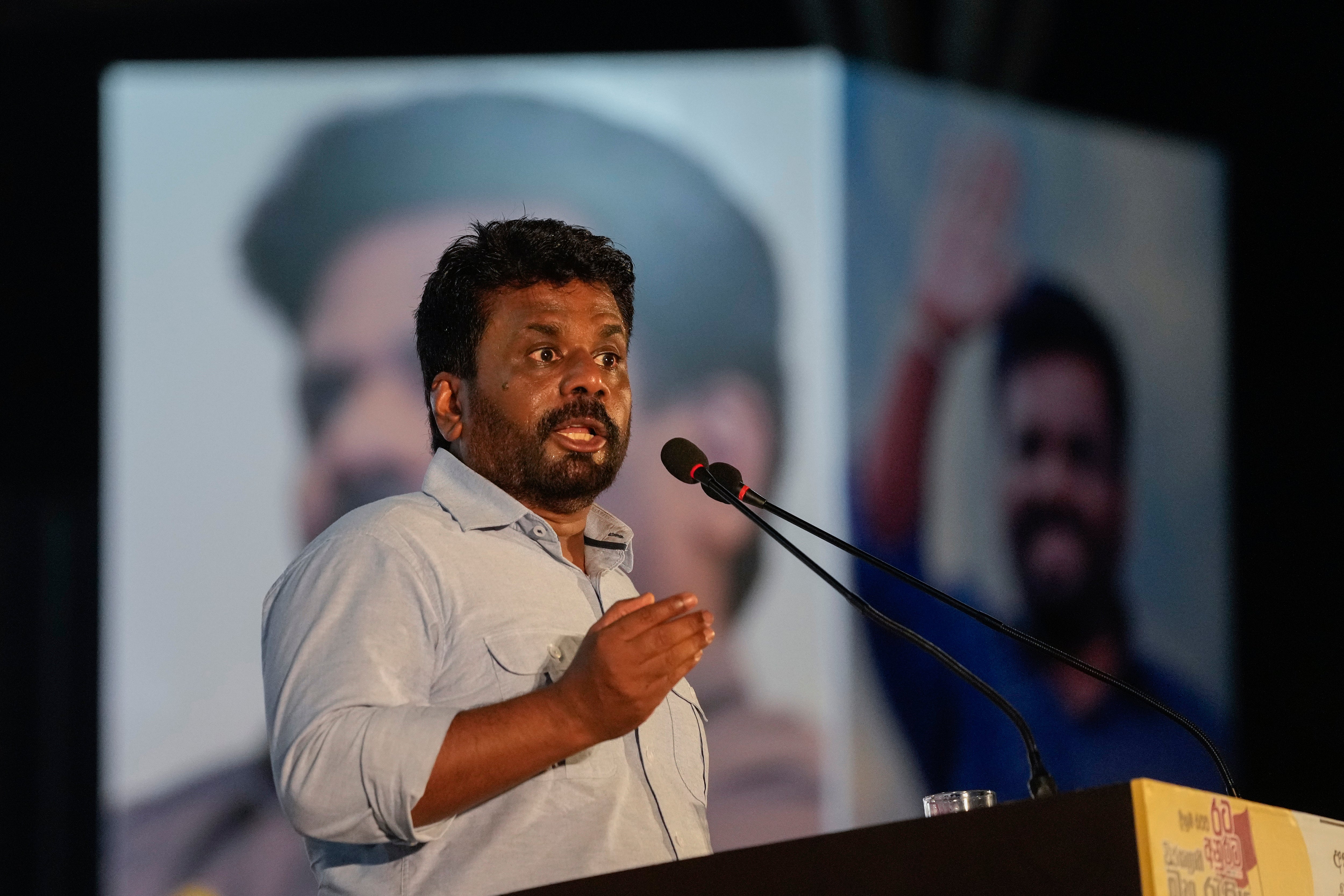
Md Salim, one of an estimated 1 million first-time voters, is excited to cast his ballot after “witnessing history” two years ago as a high school student.
“There were days when we had just two meals a day because we couldn’t buy food for the family of six due to high prices,” he says, adding that his father had to take a second job at a local eatery to make ends meet.
“To say that the protests were in vain is wrong,” says the resident of Jaffna in northern Sri Lanka.
For Sri Lanka’s 17 million eligible voters, the priority for this election will be economic revival – a departure from the usual dividing lines of ethno-religious identity politics and conflicts.
The Sri Lankan parliament nominated Mr Wickremesinghe, 75, to lead the country after Mr Rajapksa’s unceremonious exit from the island and later resignation. Though this disappointed many protesters – Mr Wickremesinghe was serving as Mr Rajapksa’s prime minister at the time and is very much an establishment figure – he managed an uncertain recovery, anchored by a $2.9bn (£2.2 bn) International Monetary Fund (IMF) bailout programme and a $25bn (£18.8bn) debt restructuring process.
The 2022 economic crash drove inflation to 70 per cent, power tariffs jumped 65 per cent and the currency depreciated 45 per cent. Inflation and interest rates are currently down to single digits, while growth of 3 per cent is expected in 2024, the first expansion since the economy shrank 7.3 per cent during the crisis.
“Think of the time when all hope was lost... we didn’t have food, gas, medicine, or any hopes. Now you have a choice. Decide if you want to go back to that period of terror, or progress,” Mr Wickremesinghe said during a recent campaign rally.
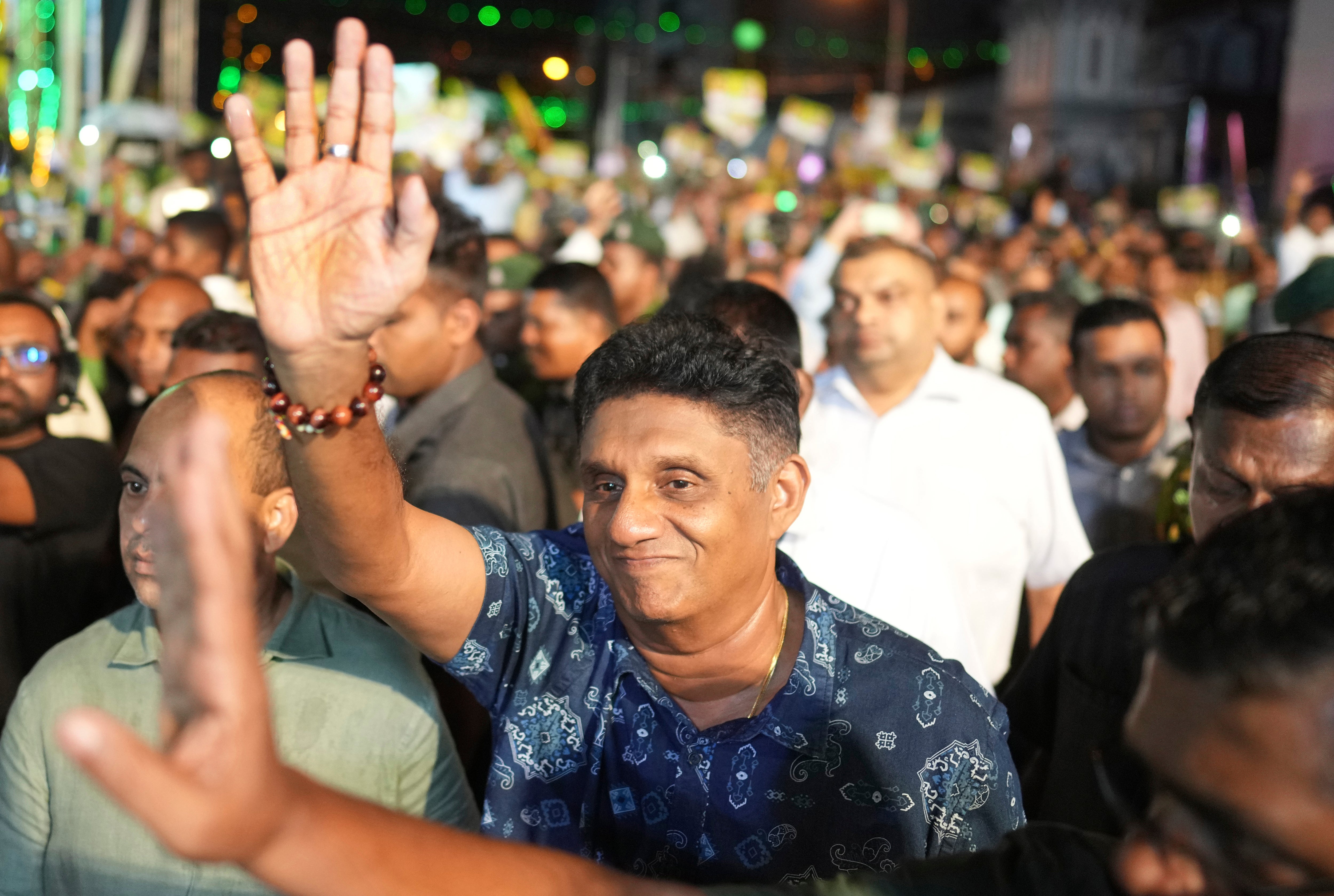
Mr Premadasa has positioned himself as “well-trained, well-educated for the top job and supported by the most capable team”. It will be his second shot at the presidency.
“We fervently believe that current governmental policies are mishandled, irrational, and not in the national interest,” he told The Print. “There needs to be a massive correction, and we are confident that the people of this country will provide us with a requisite mandate to make that correction.”
Currently polling in fourth place is the dynastic scion Namal Rajapaksa, who has presented himself as an agent of change despite his uncle’s ousting as president and the 2023 corruption convictions against members of his family. Many see his bid for the presidency as an attempt by the controversial political dynasty to regain power.
“The corruption charges are not something common to my family or to myself. If you look at all politicians in this country or in the world, including our region … all have been accused of being corrupt,” he told the Associated Press.
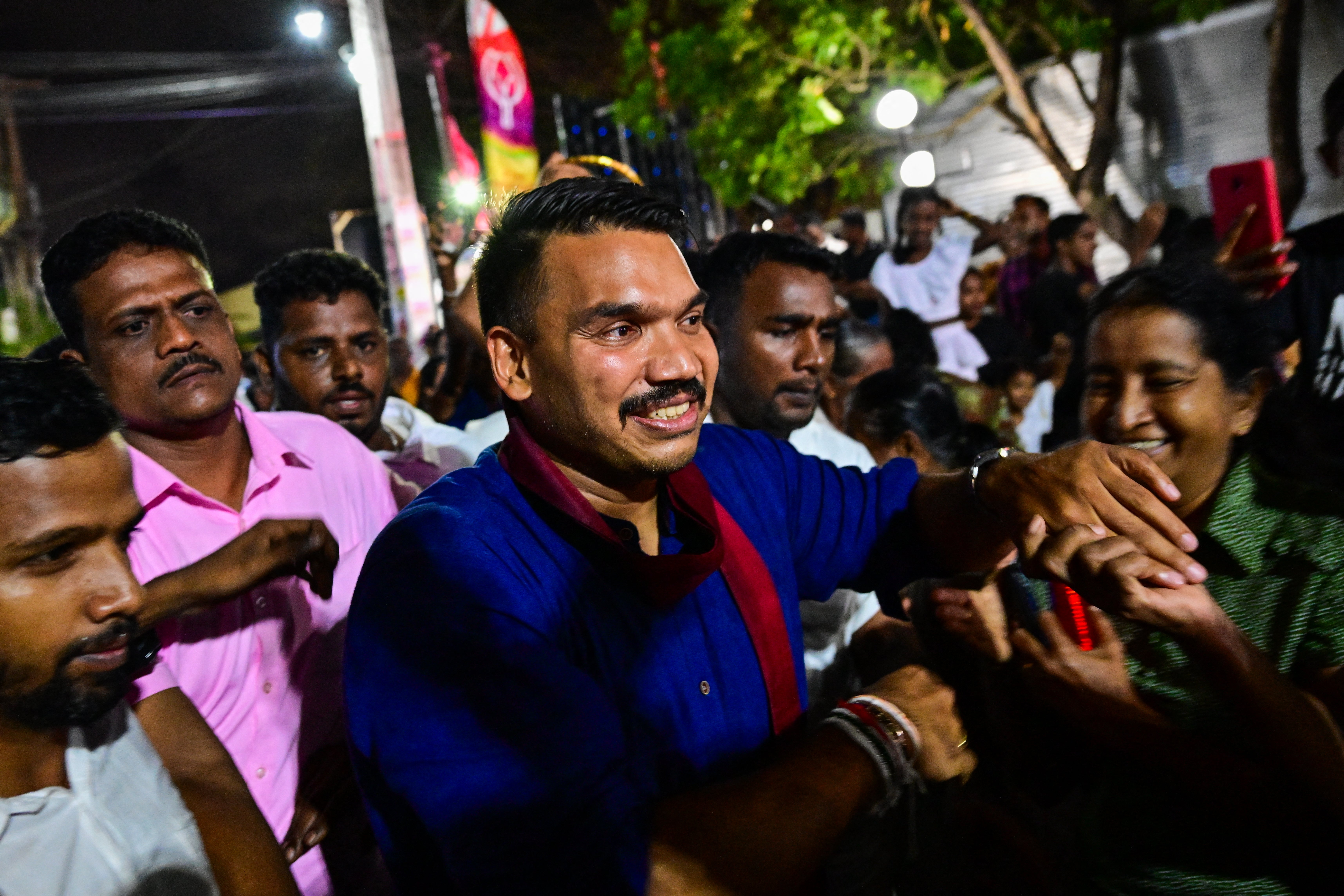
“People will understand, you know, because if you look at the current stage, everyone is blaming each other,” he said.
The candidate denied allegations of the Rajapaksas fleeing the nation during the unrest, saying: “It’s just that some people thought we were hiding.”
The Rajapaksa family has been a mainstay in Sri Lankan politics for decades, influencing nearly everything from bureaucracy to courts, police, business and sports.
Namal’s father was a prime minister and then a two-term president from 2005 to 2015. Even though Mahinda Rajapaksa was adored by the country’s majority Buddhist Sinhalese for defeating the ethnic Tamil separatists after a 26-year bloody civil war, allegations of human rights violations and corruption led to his defeat in 2015.
The family, however, returned more powerful four years later, when Mahinda’s brother was elected president. Gotabaya Rajapaksa whipped up majority Buddhist Sinhalese sentiments after the 2019 Easter Sunday bombings, blamed on Islamist extremist groups, killed 290 people.
But the family’s popularity quickly eroded under a tanking economy and alienation among ethnic Tamils, Muslims and other minorities.
The younger Rajapaksa's bid for the presidency is a test-run that would establish “his position as the heir apparent” of the political dynasty, says Alan Keenan, senior consultant on Sri Lanka at the International Crisis Group.
Saturday’s voting begins at 0700 local time [GMT 0130] and ends at 1600 with counting scheduled to start shortly after.
The Election Commission will formally announce the winner, probably on Sunday. The winner will then take the presidential oath, usually on the same day, and appoint a new cabinet of ministers.






Join our commenting forum
Join thought-provoking conversations, follow other Independent readers and see their replies
Comments